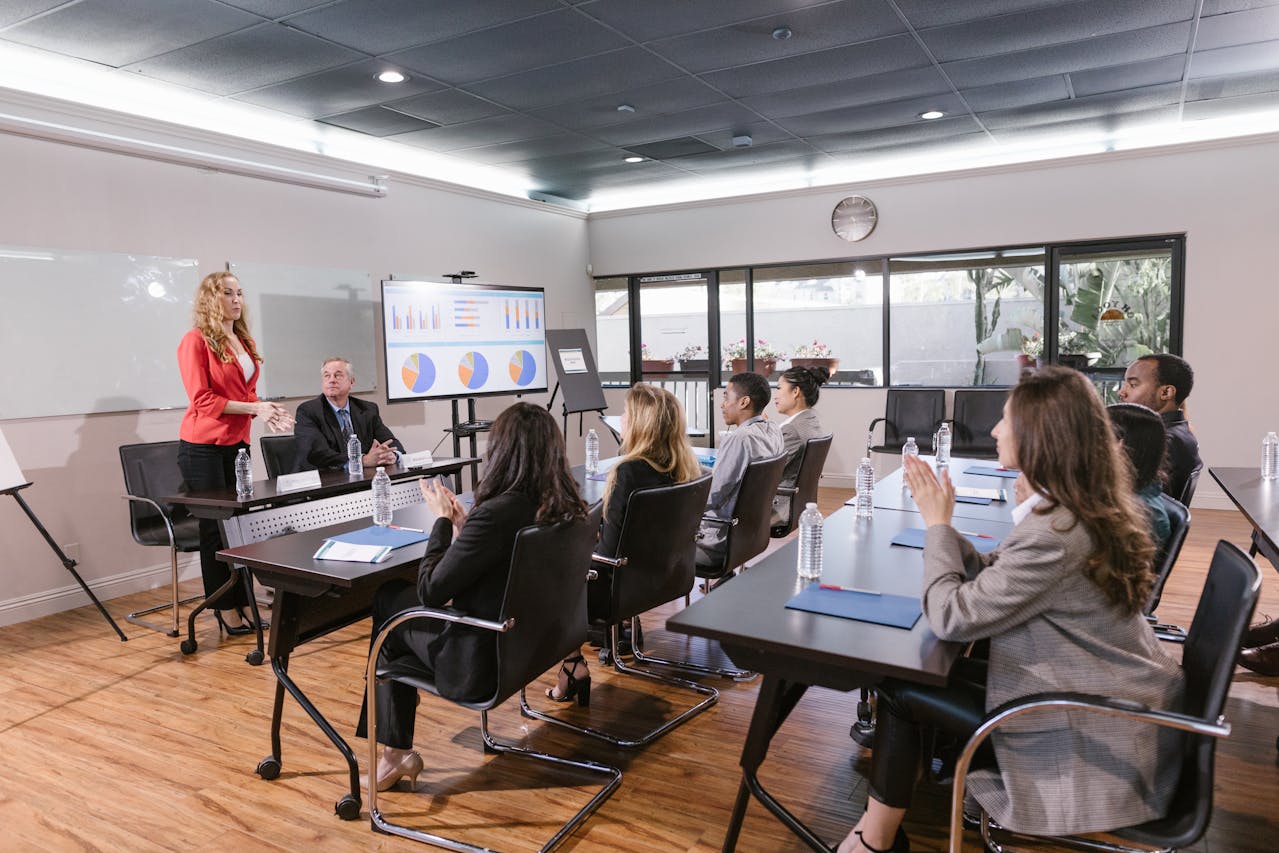As a professional matchmaker, mental health keynote speaker and business owner, I have helped build relationships from the ground up. I understand how to transform a spark into a meaningful connection that stands the test of time. I’ve seen healthy relationships rise out of the ashes of a toxic one after a client summons the strength to move on.
Like with a client I had the pleasure of helping years ago. This kind and caring man had wasted years struggling to please an unpleasable partner. His wife, the mother of his children, was unhappy with herself, and despite his best efforts, he was never going to be able to break through her wall of misery. Eventually, he realized that she alone had the power to change her mindset, and he moved on.
It wasn’t easy, or quick, but eventually, he began to heal. That is when he sought out my help. We dug deep to understand his needs and desires and then used that insight to spark and nurture a connection with a wonderful woman. The relationship flourished, and they chose to blend their families.
Fast forward five years, and this gentleman (and his lovely new wife) stopped by to visit. The joy I saw in his eyes touched me. He shared how being in a healthy relationship opened his eyes to new opportunities, and empowered him to take calculated risks, embrace change and finally live his life how he had always wanted to.
The power of a positive relationship is transformational. And it isn’t limited to love.
Building positive work relationships is just as important. Often, leaders don’t understand how relationships at work can affect an employee’s mental health, so they neglect efforts to improve work relationships. Alternatively, the most influential leaders recognize the importance of positive relationships in the workplace, and they take actionable steps to foster them.
Before diving into the strategies those influential leaders used for building positive work relationships, let’s explore why cultivating positive employee interactions in the workplace is essential for creating a people-first culture.
Understanding the Importance of Positive Relationships in the Workplace
I have always been fascinated by how being in a positive relationship can significantly affect a person’s mental health. The difference between existing in negativity versus positivity is like night and day. The darkness of negativity surrounds everything we do, while positivity brightens up every moment, exposing incredible opportunities we wouldn’t have seen otherwise.
We all crave connection. But what intrigues me is how even our pursuit of success and achievement is intrinsically linked with our innate desire to be acknowledged, understood and admired by our peers. A positive relationship, whether personal or professional, that provides a sense of security, trust and appreciation creates a ripple effect that washes over everything we do. It truly changes how we live and work. Research tells us that a strong community of friendship not only increases happiness, but helps us to live longer, healthier lives. We spend most of our waking hours at work, so therefore it’s vital that we highlight connection in our organizations.
In today’s work environment, employees no longer settle for disconnection — not from themselves and certainly not from their colleagues or a leader. As their leader, you have the power to develop connections in your organization, connections that foster collaboration and teamwork and contribute to an environment of trust, respect and support. These connections will ultimately create a psychologically safe culture that supports mental health at work.
Unleashing that power ensures employees thrive, emotionally and mentally.
How Genuine Employee Interactions in the Workplace Lead to Happier Environments
Most of us don’t leave jobs we are passionate about because of our work. Usually, we move on despite enjoying our work simply because we feel disconnected from the people we work with. The relationships we have (or don’t have) at work make or break our professional journey. Employee interactions in the workplace with their leader are the driving force behind employees’ happiness and wellbeing.
When we feel isolated, it’s hard to be invested in an organization. The importance of relationships in the workplace is paramount. Unfortunately, not all leaders recognize the impact building positive work relationships can have, not only for productivity but also for enhancing well-being that carries over from the workplace and into an employee’s personal life.
Hiring is like dating. To spark a connection and create a meaningful partnership, you must be a personable, connected, curious and transparent leader. You can start to improve work relationships by spending time getting to know your employees, fostering collaboration and teamwork and creating a culture of inclusivity and support. Your efforts will heighten growth, boost fulfillment and engagement, cause retention rates to soar and attract the right talent.
The overlap between work and life continues to become more and more intertwined.
It’s time to close the gap and bring more of our authentic selves to the table professionally, just as we do personally. After all, in both situations, you are interacting with human beings. The qualities and strategies integral to building personal relationships are the same qualities and strategies that will improve work relationships.
Case Study in Reclaiming Joy: A Story of Workplace Transformation
Previously, I mentioned how a positive romantic relationship changed my client’s life. Now, I want to share another story that will hit close to home for leaders.
A friend of mine had worked hard to attain a high-powered role at a major publishing company, but after a few months in the role, she fell into a slump. Her enthusiasm fizzled, she was grappling with disengagement and she felt burdened by a heavy load of stress that affected her life outside of work. She wasn’t blind to the root of her issues, but she was unsure how to fix it.
It was her boss. Despite being a quintessential micromanager, the lines of communication were nonexistent, leaving employees feeling isolated and anxious. It was a vicious cycle that my friend was on the brink of disrupting by exploring job opportunities elsewhere.
But before she could, the story took a turn. Her boss caught wind of the team’s discontent, and he began opening up, sharing his vulnerabilities and finally trusting his team. It was a profound transformation, not only for him but for my friend as well. She found herself smiling and enjoying work and life again. As her mood lifted, she also began prioritizing her health and well-being. Her boss’s willingness to build a positive relationship with his team irrevocably altered her professional journey for the better.
Isn’t it incredible how powerful one leader’s positive impact can be?
Three Essential Ways to Improve Work Relationships
Positive relationships can be life-altering, both at work and in life. You have control over your personal and professional relationships, and we’ve explored what steps you can take to enhance those. But what about relationships between your team members?
Can you, as their leader, impact a relationship you are not part of? Yes, you can. And should. It may require a different approach, and the expert guidance of a mental health keynote speaker, but your influence over your team’s relationships with each other is significant.
1. Know Your People
In the same way that knowing yourself and your partner is vital to maintaining healthy personal relationships, it’s important to know your people when striving to support their mental health and foster effective relationship-building at work. If employees display signs of disconnection, it’s time to embark on a mission to get to know every member of your team. This doesn’t mean simply scratching the surface with superficial dialogue. It requires asking deep questions to unearth their aspirations, hopes and fears, and even reveal the dark corners where insecurities live.
It’s essential to recognize that working alongside someone for a long time doesn’t automatically mean you know them. Humans are intricate creatures who evolve based on life events and circumstances. To truly connect, you need to have a finger on the pulse of their current situation. This will also help mitigate any issues before they spiral out of control.
You might find yourself pleasantly surprised by the positive impact getting to know your team will also have on your work and life.
2. Learn the Art of Being Personable, Not Personal
They say there’s a thin line between love and hate. I say there’s an even thinner line between being personable and getting personal. With the weight of responsibility that comes with your role, it may feel as if you need to establish firm boundaries. And while that is true, it is also imperative to let your team get to know you.
Where is the line between sharing vulnerabilities and exposing your life story?
Improving employee interaction in the workplace doesn’t require every detail about your family dynamics, your daily struggles, your joys or your heartaches. What your team needs to hear is your perspective. They need to understand what shapes their leader’s viewpoints and decisions. This will make them feel connected. This matters because part of what hurts our mental well-being, especially with today’s remote work environment, advanced technology and aftermath of an isolating pandemic, is feeling alone. A level of detachment exists that we have never experienced before. And it’s up to us, as leaders, to shift our priorities to support mental health at work and combat this issue.
So go ahead and share your feelings about topics like this. It demonstrates your vulnerability as a leader and forges meaningful bonds. It lets employees see that you, too, are human and that the same things that bother them, bother you. This will inspire respect, not only in your leadership abilities, but also in you as a person. Striking the balance between being relatable without compromising professional boundaries empowers you to be the leader your team needs.
3. Build Positive Relationships Through Expert Guidance
As a female keynote speaker, leadership expert and professional matchmaker, I have mastered the art of helping clients build positive relationships to create meaningful transformation. And because connections are at the heart of everything we do, connecting with an engaging female keynote speaker to guide you on your journey is vital.
With my experience in matchmaking and leadership, I will help you create a work environment that fosters positive relationships. These relationships will open your and your team’s eyes to incredible opportunities and help everyone live their life the way they expect and deserve.
Doesn’t that sound like an environment anybody would feel incredibly lucky to work in?






















